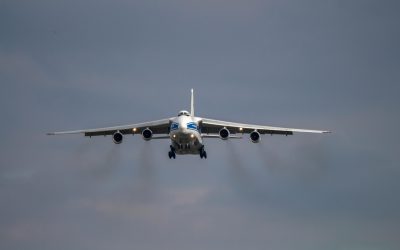linkedin.com/in/shadrachswantekambai

The Nigerian aviation sector is evolving rapidly, with new entrants such as Green Africa, ValueJET, United Nigeria, and Rano Air bringing new business models to the table in terms of new pricing strategies, lower operational costs, and high operational efficiency. It is no longer news that Nigeria’s business environment has grown more competitive and fascinating than ever before. There is little question that Captain Musa Nuhu MBA, FRAeS DG NCAA, and his team efforts have had a favorable influence on the sector.
The age of one airline having a monopoly on the business due to technological and operational capability, government ties, and aircraft type has ended. These indicate that exciting times are ahead, and if this momentum continues, what happened in the banking sector years ago is likely to happen in the aviation industry as well. These developments will likely prompt airlines to seek strategic alliances, globalization and regionalization, partnerships, interlining, and mergers in the near future. However, these developments create a new leadership dilemma, necessitating the emergence of new leaders with new leadership strategies to meet the growing business environment.
These indicate that exciting times are ahead, and if this momentum continues, what happened in the banking sector years ago is likely to happen in the aviation industry as well. These developments will likely prompt airlines to seek strategic alliances, globalization and regionalization, partnerships, interlining, and mergers in the near future.
Cliqjets Consulting
The ability of an airline’s management to understand leadership, the strategy required to succeed in a business environment, and put its principles into action is one of the most important lessons an airline can teach its management to help them make the right decisions in difficult situations. However, every form of leadership adopted by an airline comes with a unique set of challenges and dilemmas Prom-Jackson et al. (2002).
A leadership dilemma refers to a situation where a leader is faced with a difficult decision that involves balancing conflicting interests, values, or goals. Leadership quandaries can emerge in a variety of circumstances in airline management, such as favoring cost-cutting tactics over investing in staff development, emphasizing profits over safety, lowering turnaround times over guaranteeing customer pleasure, and many more. In this post, I’d like to explore briefly how leadership affects airline management, and the following are some of the effects:
Operational efficiency
When airline management experiences a leadership dilemma, operational efficiency suffers. Poor operational efficiency, for example, can result in lower revenue for the airline because customers may choose to fly with competitors who provide a better experience; it can also create safety concerns for passengers and crew, as well as increase the risk of accidents and incidents; it can lead to stress and frustration among airline employees, which can lower morale; it can lead to increased costs for the airline, such as higher fuel consumption, maintenance expenses, and an increase in the risk of accidents and incidents; it can lead to stress and frustration among airline employees, which can lead to frustrated passengers and a damaged reputation for the airline.
Customer satisfaction
Customer happiness is critical to the success of an airline in the aviation sector. When airline executives confront leadership dilemmas, such as cutting turnaround times, it can have an impact on passenger satisfaction if it results in delayed departures or missed connections. This can have a negative impact on the airline’s reputation and financial line. Also, consumers who are dissatisfied with their experience are less likely to pick the airline for future trips and are less likely to remain loyal to the airline, making it more difficult to retain consumers and expand the business while also decreasing revenue.
Employee retention
When airline management is faced with a leadership dilemma, such as prioritizing cost-cutting measures over investing in employee development, it can lead to employee dissatisfaction and turnover. Low staff retention may have a substantial influence on an airline’s bottom line, reputation, and competitiveness. Airlines must prioritize employee retention by offering competitive wages and benefits, chances for growth and development, and a healthy work environment. This can assist to enhance staff happiness, productivity, and retention, which will benefit the airline and its stakeholders in the long run. This can impact the airline’s ability to retain experienced and talented employees, which can ultimately affect the airline’s operations and competitiveness.
Safety standards
Safety is crucial in the aviation sector, and any mistake that jeopardizes safety can have serious consequences. When airline management encounters leadership dilemmas, such as putting profits over safety, the safety of passengers and staff is jeopardized. Low safety standards can also result in legal and regulatory implications such as fines, penalties, the loss of operating licenses, and increased insurance costs, which can be significant for airlines. All of this can have an impact on the airline’s reputation and bottom line. As a result, management must guarantee that the leadership has the ability to make decisions that will assist them to get out of the dilemma.
Conclusion
The impacts of leadership dilemmas on airline management can be significant, and effective leadership involves finding the right balance between competing priorities, making decisions that align with the organization’s values and goals, and communicating those decisions in a way that inspires confidence and trust among employees, customers, and other stakeholders.






I want to to thank you for this great read!! I absolutely loved every little bit of it. I have got you saved as a favorite to look at new stuff you postÖ
Hello there, just became aware of your blog through Google, and found that it’s really informative.
I’m going to watch out for brussels. I’ll appreciate if you continue this in future.
A lot of people will be benefited from your writing.
Cheers! Lista escape roomów
Very interesting topic, appreciate it for posting.!
Very interesting subject, appreciate it for putting up.?
“CliqJets, a private jet charter service, offers luxury and convenience for travelers seeking personalized flight experiences. Just as drake age reflects his evolution as an artist, CliqJets represents the growth in aviation services, adapting to the demands of high-profile clients who value exclusivity and comfort in their travels.”